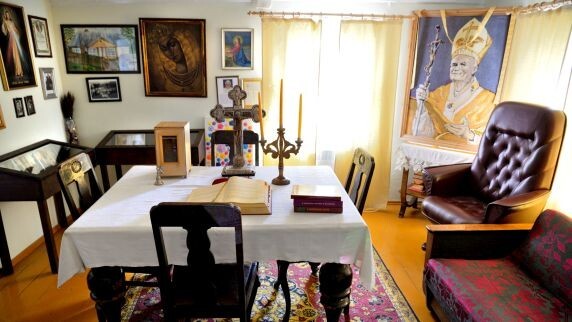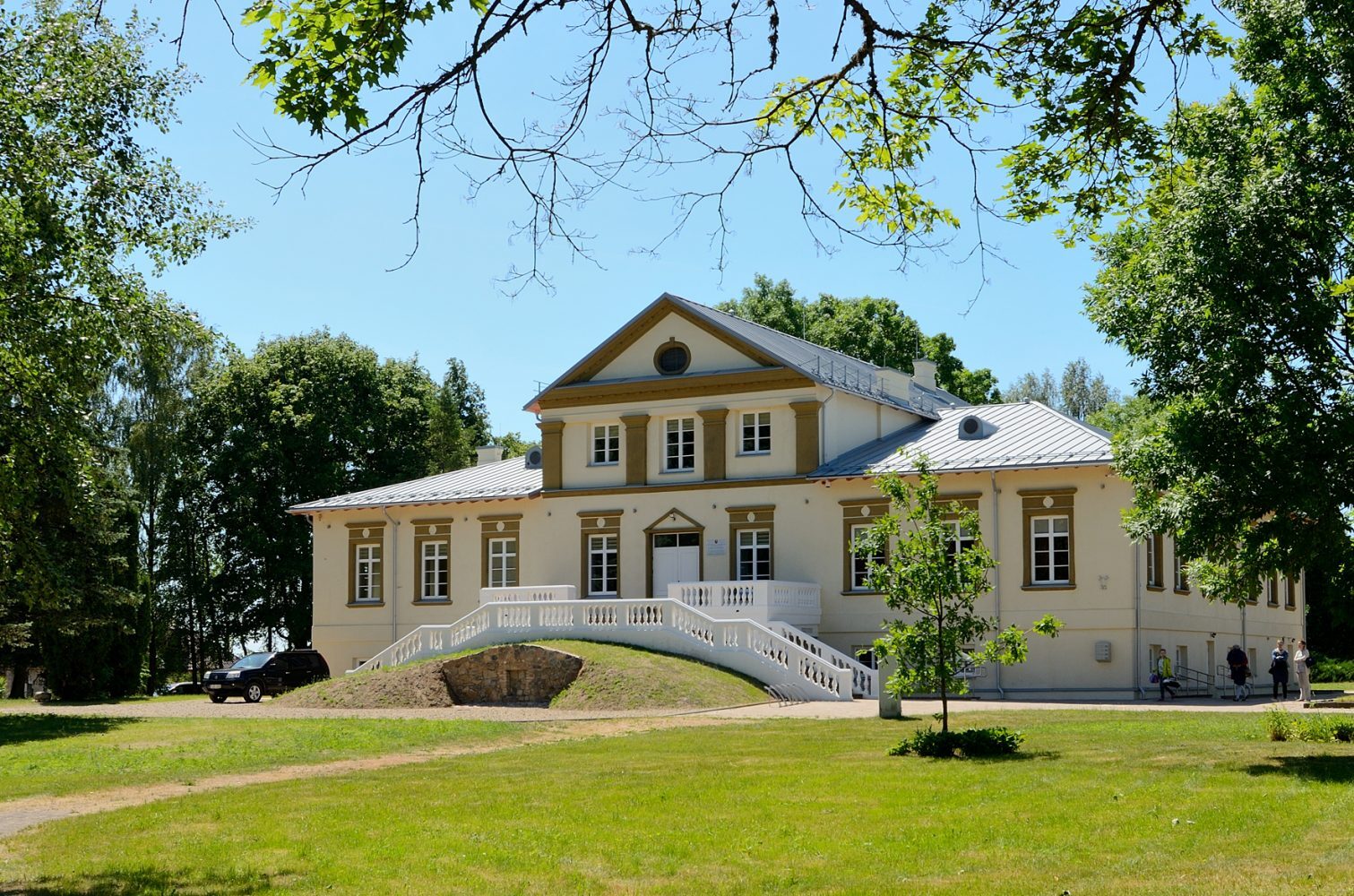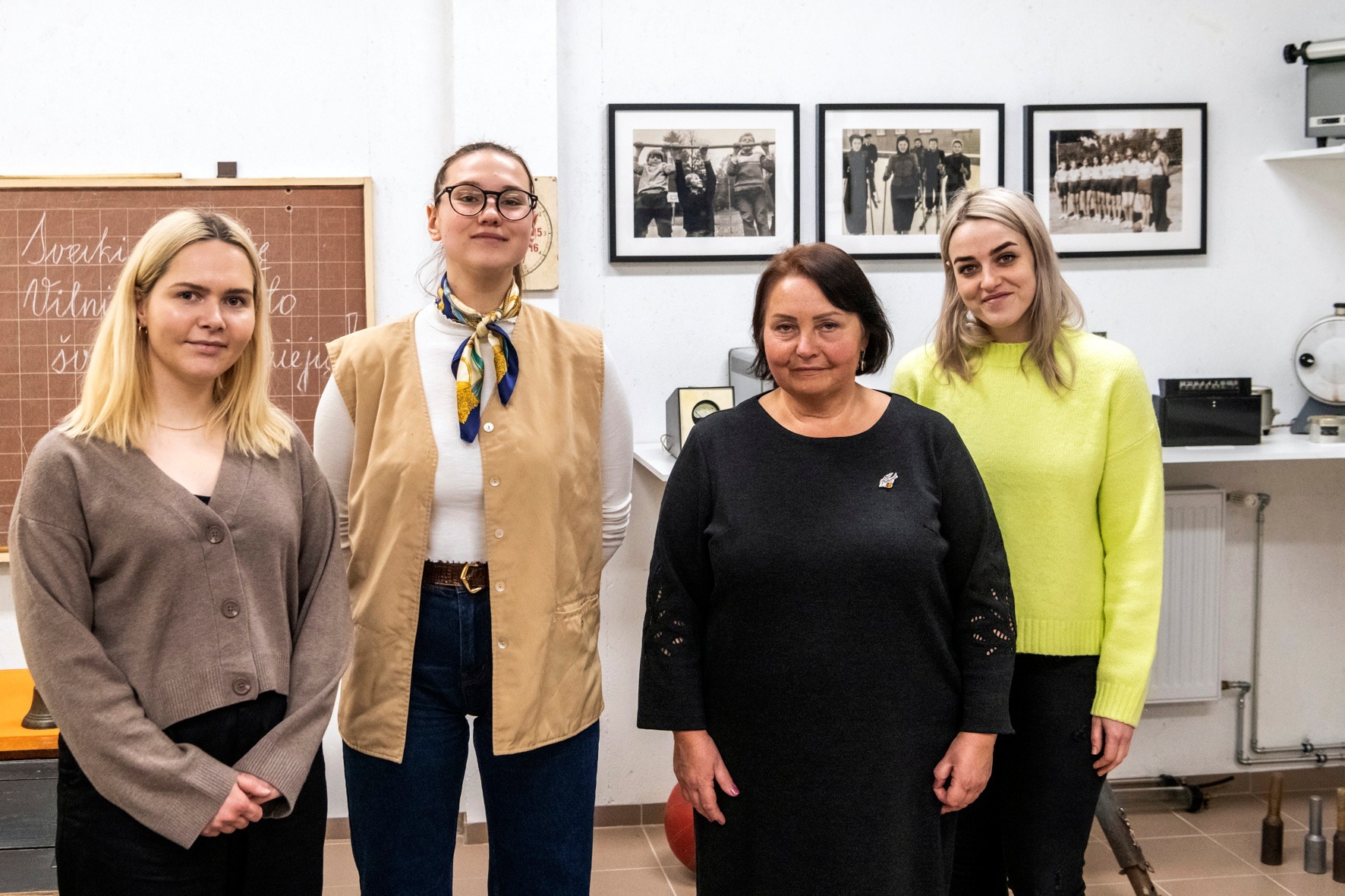The EUROPAST research component (part of Work package 2) focuses on the representation of the history of the Vilnius region in memory institutions and among diverse ethnic communities in the region.
Although the region was historically inhabited by various ethnic communities and has a rich and diverse culture, its distinctiveness as well as different interpretations of its history are often not represented in public narratives. Thus, the focus of the research project was chosen based on gaps in existing research and the relevance of this case for the EUROPAST project. The research seeks to answer the following questions: Whose voices are included, and whose are excluded, in the representation of the history of the Vilnius region at the local and national levels? How has this changed over time? How is the multiethnicity, multilingualism and multiculturalism of the Vilnius region presented and valued in memory and public institutions as well as ethnic communities in the Vilnius region? What techniques have worked best to increase the engagement of citizens in the co-production of public history and strengthen democratic deliberation in the Vilnius region?
Work on the research dataset, which will consist of oral history interviews with the representatives of the memory institutions, practitioners of history, and public historians from various ethnic groups of the Vilnius historical region, is well underway. Desk research for the design and preparation for the interviews is complete, and data collection, including focus group discussions, individual and joint interviews, and observation, is currently being conducted. The data is collected by a team of early-career researchers from VU, namely Rūta Vyšniauskaitė and Laura Puciataitė from the Institute of International Relations and Political Science (IIRPS) as well as Ignė Rasickaitė from the Faculty of History, led by the Project Leader prof. Violeta Davoliūtė. Once the data collection is finalised, the transcripts of the interviews and focus group discussions will be prepared and uploaded to the National Open Access Research Data Archive (MIDAS) under conditions foreseen in the EUROPAST Data Management Plan (DMP).
During the EUROPAST mid-term conference (5-6 July 2024), researchers from Vilnius University Violeta Davoliūtė and Dovilė Budrytė, and early-career researchers Rūta Vyšniauskaitė and Ignė Rasickaitė presented their research on the local representations of the multi-ethnic history of Vilnius region. The data collected and the possibilities for further research were considered in a roundtable discussion with the Vilnius University research team by researchers from Lund University, the Leibniz Center for Contemporary History in Potsdam and Georgia Gwinnett College.
According to the EUROPAST researchers, the data collected will help to understand how the unique historical identity of the Vilnius region and its multi-ethnic communities is narrated and fostered in local memory institutions and these communities. During the roundtable discussion, researchers discussed the evolution of historical representations in museums in the Vilnius Region, the presentation and evaluation of multiethnicity and multilingualism in exhibitions and other museum activities, and effective strategies for engaging citizens in shaping public history. The following themes were particularly emphasised by the panellists and the audience:
- Although Vilnius Region is home to diverse ethnic communities, its rich cultural landscape is frequently overlooked in national historical narratives
- Museums tend to focus heavily on historical facts and events in their narratives but give little attention to the experiences and interpretations of individuals and communities, the interactions between them and their cultural and political contexts, and the contested historical themes in the Vilnius region
- Museums in the Vilnius region are faced with the problem of limited resources, forcing them to choose between maintaining and improving their infrastructure and enhancing the quality of content in the museum
- Interdisciplinary insights are important for this type of research, as they would allow a better understanding of the interaction between historical events, memory, culture and politics.
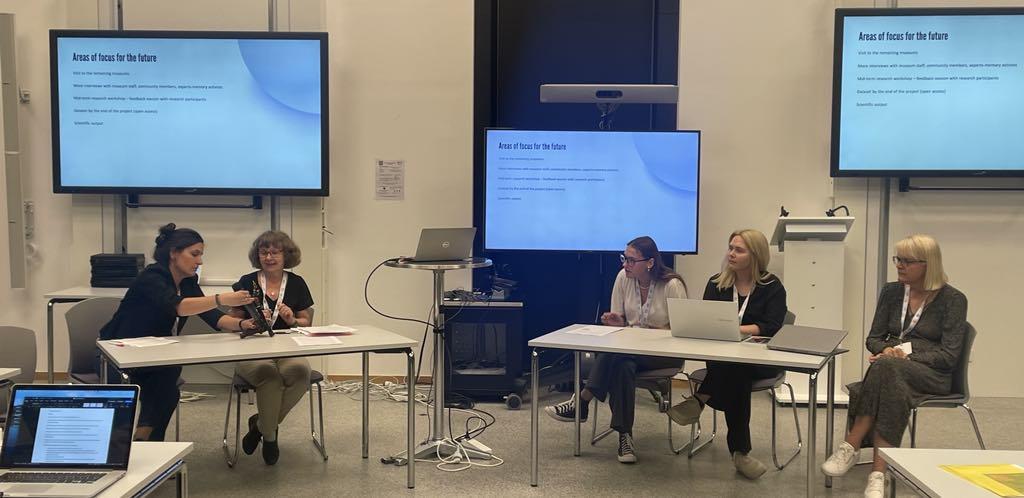
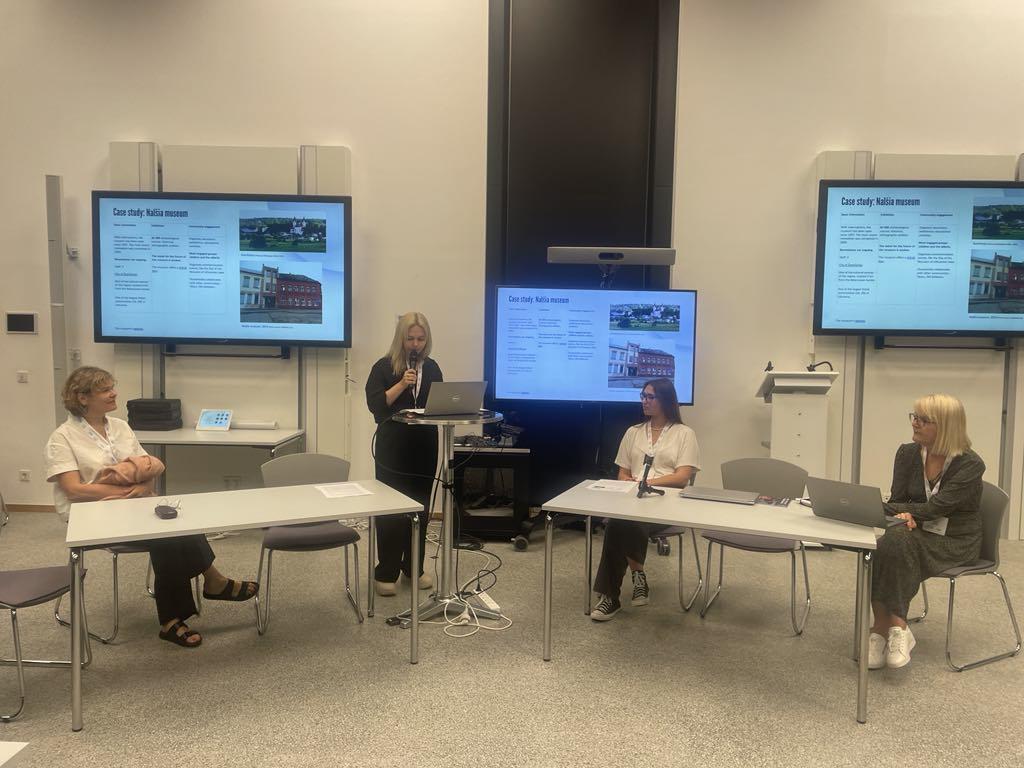
On 7 October 2024, the EUROPAST researchers team met with museum practitioners, managers and decision-makers to assess the progress of the research on the representations of the multi-ethnic history of the Vilnius region and to discuss its future directions. The EUROPAST team presented the idea and objectives of the research, discussed the historical and political context of the Vilnius Region, research methodology, the types of museums defined in the scientific literature, the expected outcome of the research – an interactive map of the museums in the Vilnius Region – and its usefulness for practitioners. This was followed by a lively discussion, during which the participants expressed their needs and provided suggestions on future data collection and research implementation directions. You may find the program of the event here (Lithuanian language only).
Public history research is characterized by the equal relationship between the researcher and the research participants. It is maintained that both the researcher and the research participants make a significant contribution to the implementation and quality of the research, which is why the research participants are not seen as passive objects of the research, but as active creators of content. It is therefore very important for the EUROPAST team to hear and include the voices of people who tackle the questions raised by this research every day.

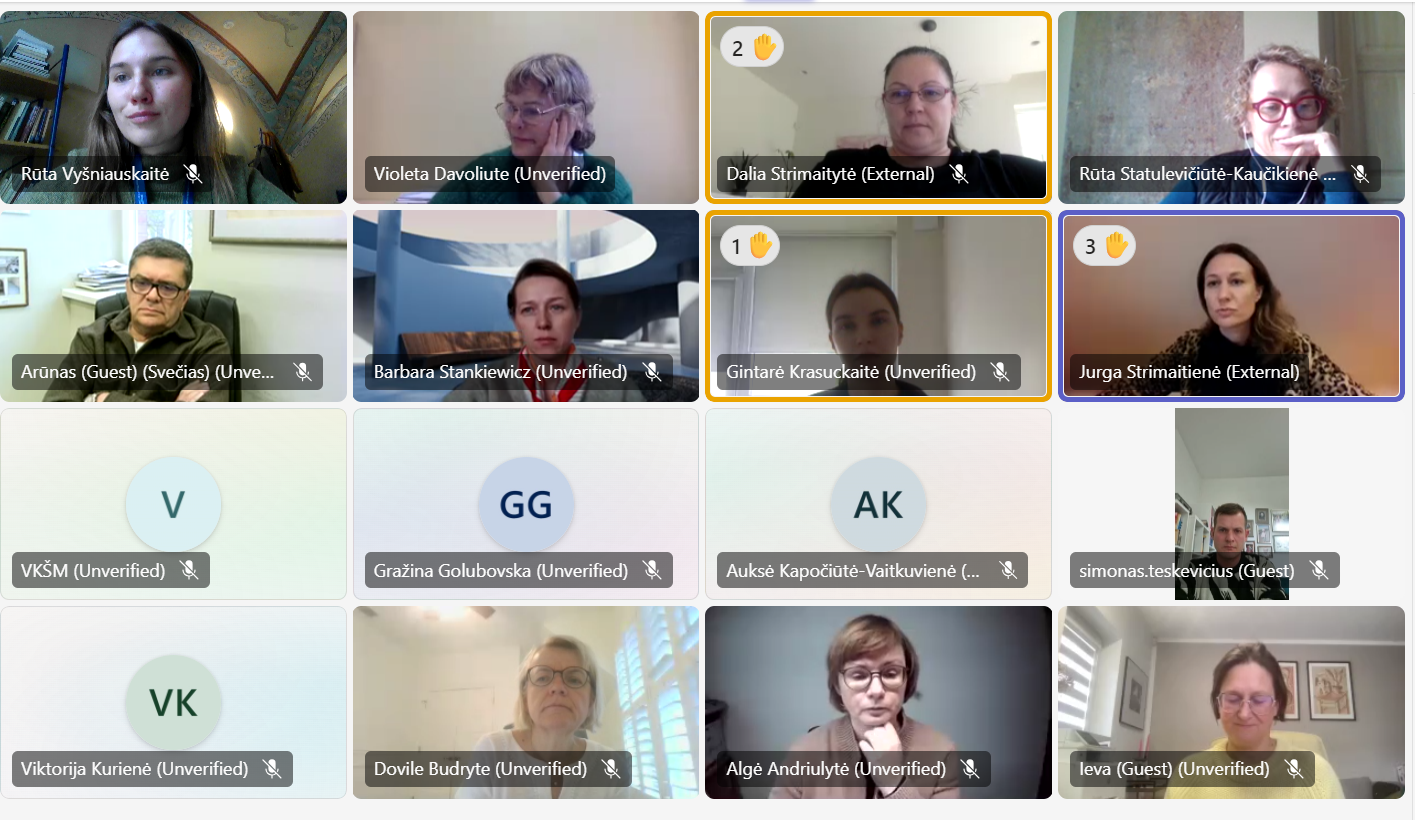
In continuation of the fruitful collaboration with the project’s stakeholders—museum practitioners and administrators, policy-makers, memory and local history activists, researchers and others— the Final research workshop of the project was held on 10 July 2025. During this activity, stakeholders were informed about the progress of the research over the past year, engaged in discussions on key issues, and provided valuable input regarding the research methodology, participant selection, and the overall results of the EUROPAST project. But even more importantly, participants had the opportunity to critically assess and discuss the preliminary findings from the data collection phase. The research team facilitated a dialogue by inviting participants to share their perspectives on the findings presented, reflect on whether they resonated with their own experiences working in or with museums—particularly in the Vilnius region—and propose potential solutions to the challenges identified in the preliminary conclusions. The discussion and exchange of experiences among stakeholders and the EUROPAST research team resulted in the formulation of the following recommendations:
- Museum practitioners working in the Vilnius region lack expertise in museology and history and require more engagement with or from professional historians from reputable research and educational institutions.
- To solve administrative-practical challenges and improve the quality of museums in the Vilnius region, their institutional infrastructure should be strengthened, for example, by working towards receiving the status of a museum or joining the Lithuanian Museums Association.
- Deeper cooperation and communication between different museums in the Vilnius region should be encouraged and strengthened.
- Additionally, museum practitioners working in museums in the Vilnius region should be better supported in their efforts to receive EU funding.
- There is a lack of engagement with contested or controversial historical events and periods because different historical memories dominate in different communities of the region, and there is a lack of “memory leaders,” i.e., mnemonic activists. Thus, the recommendation would be to strengthen cooperation between museums in the region and professional historians, whilst not forgetting the importance of including local activists.
The continued involvement of stakeholders has been highly productive and will undoubtedly enrich the EUROPAST research and the research team’s understanding of the complex and dynamic public history practices in the Vilnius region. Hopefully, such formats can create new opportunities for networking, knowledge exchange, and experience-sharing among stakeholders, while also enhancing the visibility of the institutions and individuals dedicated to public history in the Vilnius region.
The project team extends sincere gratitude to all institutions that participated in both research workshops: Museum of Vladislovas Sirokomlė, Trakų Vokė Manor, Pasvalys Regional Museum, Vilnius Regional Museum of Education, Museum of Priest Prelate Józef Obrembski, Juodšiliai St. Ursula Leduchovska Gymnasium, Lithuanian Theatre, Music and Cinema Museum, Panevėžys Local Lore Museum, National Museum of Lithuania, Vilnius district municipality, Museum of Urban Wooden Architecture, Lithuanian National Museum of Art, Genocide and Resistance Research Centre of Lithuania, The Department Of National Minorities To The Government Of The Republic Of Lithuania, Kėdainiai Regional Museum, Vilnius Ethnic Culture Center, Lithuanian Institute of History, and Vytautas the Great War Museum.
The program of this workshop (in Lithuanian) can be found here.
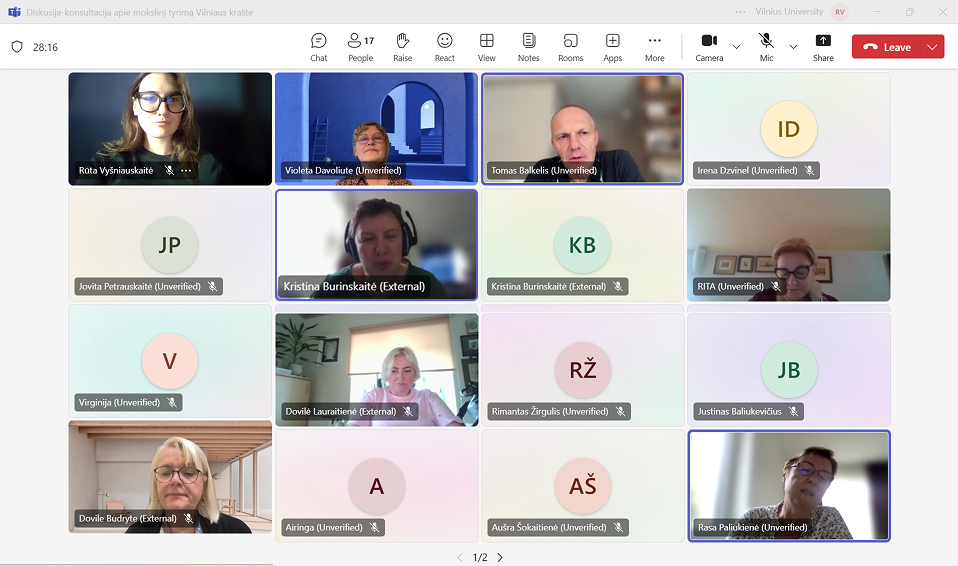
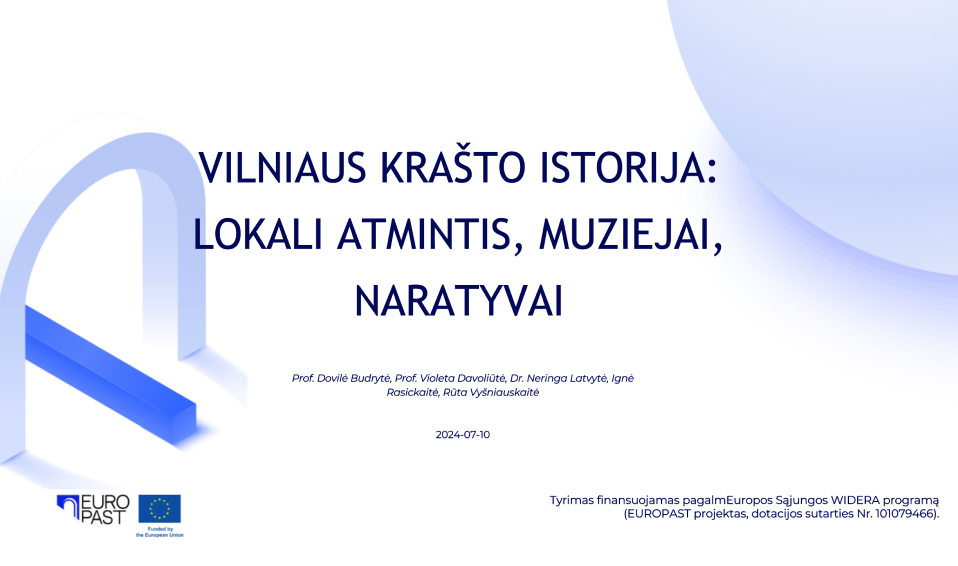
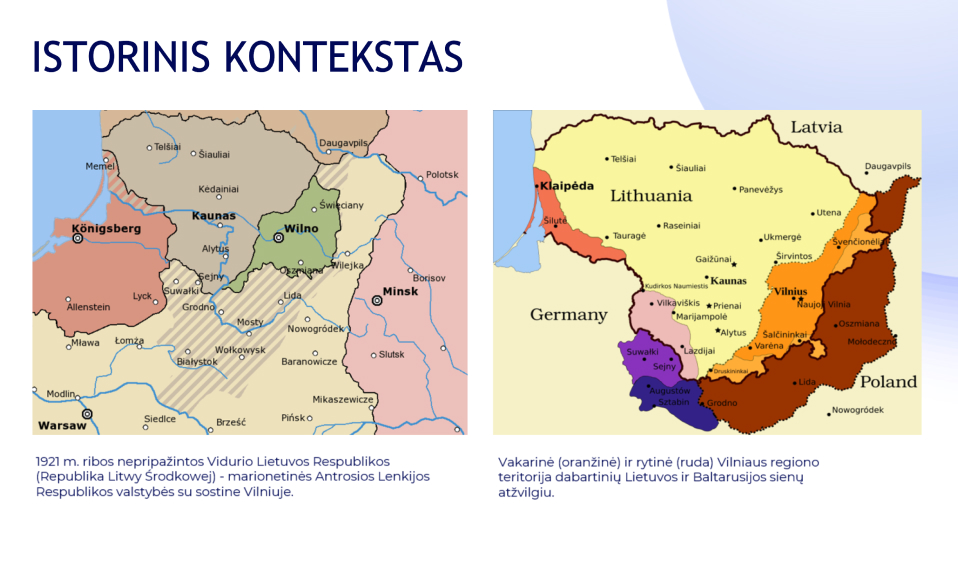
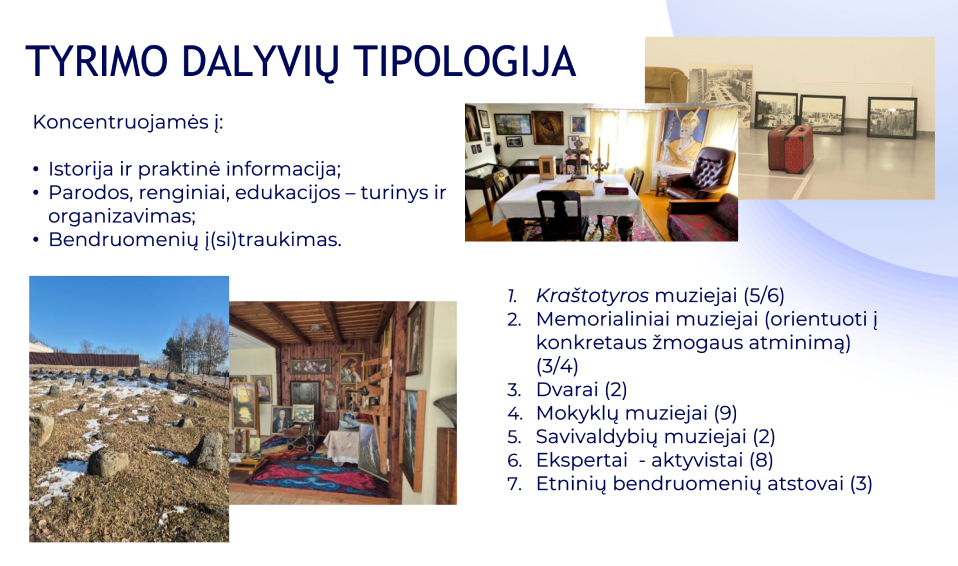
An important result of the extensive research carried out by the project's team of researchers for over more than a year is a collection of interviews about the history of the Vilnius region in local memory institutions, ethnic communities and activist work. The collection consists of 28 qualitative interviews (in Lithuanian) with museum practitioners, other representatives of memory institutions, historians, teachers, activists, public historians, and members of various ethnic groups living in the so-called Vilnija. Fostering the open science principles, this diverse and interestig data collection has been opened and made accessible for use to other researchers as well as everyone interested in the topic. The Vilnius region constitutes a considerable gap in research in the social sciences and humanities not only on a global scale but on regional and local scales as well. The project team hopes that this opening up of data will help researchers, and especially early career researchers, to develop and promote interdisciplinary studies into the public history practices of this fascinating area.
To discover the collection*, click HERE.
The EUROPAST research was led by Prof. Violeta Davoliūtė; interviews were conducted by Rūta Vyšniauskaitė, Ignė Rasickaitė, and Dr. Neringa Latvytė. Prof. Dovilė Budrytė has kindly consulted the research team. The interviews have been transcribed by the students of the Institute of International Relations and Political Science at Vilnius University: Laura Puciataitė, Justinas Baliukevičius, Taja Tamkevičiūtė, Karolis Kindurys, Ugnė Beišytė, and Elzė M. Opgenorth. Thank you to all the research participants, researchers and other contributors!
*The collection is currently being complemented by new data.

